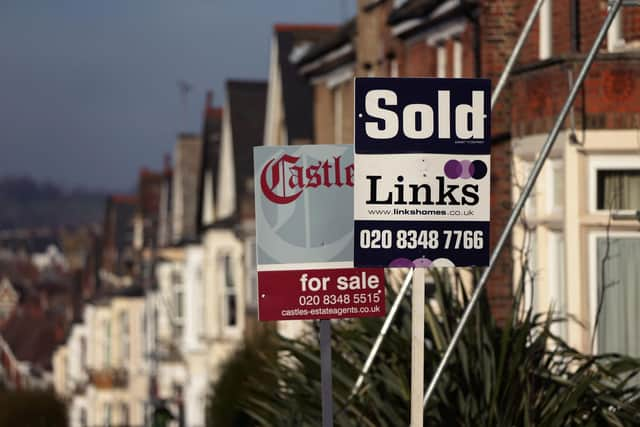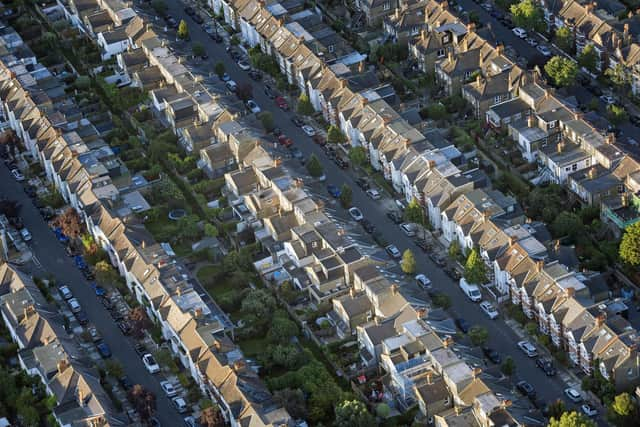The housing market in Britain is set to cool, here's why - Mark Casci
There is, however, one area that has remained stable, that of the housing market.
Despite the shocks of the Brexit vote, the intractable period it took to get Brexit actually done, botched elections, a pandemic, recession and now a severe cost of living crisis, the housing market has fared well.
Advertisement
Hide AdAdvertisement
Hide AdFigures published this week by Halifax showed that the average house price in Yorkshire is £197,955.


This represents a 10.3 per cent increase on last year alone.
Nationally, the average UK house price increased by more than £3,000 in April, in the longest run of monthly rises since 2016, according to an index.
A lot of this can be put down to the pandemic.
Lockdowns meant that many of us spent so much time at home that we either decided to make improvements to our properties or move altogether.


However, as we all know, what goes up must come down.
Advertisement
Hide AdAdvertisement
Hide AdSince 2000 the average cost of a UK home has come close to trebling.
There is a simple reason for this. Successive governments have failed to enact an effective housing policy, meaning that supply has massively failed to keep up with demand.
Record-low interest rates have helped to put the wind in the housing market’s sails, to the point that the current base rate being increased to 1 per cent was treated as hugely significant, hardly surprising given it was 0.1 per cent for many months.


The latest interest rate rise will be far from the only one. Further increases are almost certain to transpire in 2022. And all of this will mean mortgage repayment fees will increase.
Advertisement
Hide AdAdvertisement
Hide AdThe aforementioned cost of living crisis will also knock the stuffing out of the booming demand for housing.
The price of energy, fuel, food and basic goods are all on the rise and will continue to do so.
With household budgets facing such an unprecedented increase, the appetite for what is after all any family or individual’s biggest purchase cannot avoid being diminished.
And with prices now at such a high rate all potential suitors, from first-time buyers to those already on the market, will think twice about making any move.
Advertisement
Hide AdAdvertisement
Hide AdIn its update earlier this month Halifax confirmed that the growth in prices is already losing pace.
Halifax’s owner Lloyds has predicted a slower market throughout the rest of the year as inflation puts pressure on this growth.
And then, of course, we come back to the issue of supply.
In its 2019 election manifesto the Tories committed to building 300,000 homes a year in England alone by the middle of the decade but in its first year in office only 243,000 were built.
In this week’s Queen’s Speech, delivered by the Prince of Wales in place of his mother the Queen, there was a policy to try and make it easier to approve development wherein councils were given greater control over what is built in their locales. A further commitment to local quotas has also been mooted.
Advertisement
Hide AdAdvertisement
Hide AdOn the Today programme this week Levelling Up minister Michael Gove talked of the need to establish proper communities and not just “dormitories”.
This is the correct intent but will the policy work? Former Prime Minister Theresa May remains yet to be convinced, having referred to it as “ill-conceived”.
So what does all this mean for the housing market?
I believe the incredible run it has been on for the past decade, amid all the storms it has faced, is about to come to an end.
Whether this will mean a reduction in prices or simply a massive cooled rate of increases remains to be seen.
Advertisement
Hide AdAdvertisement
Hide AdWhat is clear, however, is that young people are still encountering a market that does not meet their needs and any notion of levelling up the UK must include measures that ensure access to somewhere to live is not so prohibitive.
